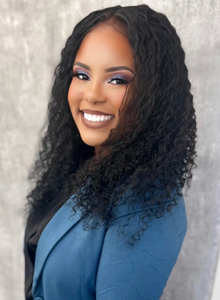It’s no secret that black men face a unique set of circumstances in our world; economic, healthcare, and educational disparities, systemic racism, and social injustice. These factors create a world where it seems Black men’s lives are rarely valued, much less their thoughts and feelings. This has resulted in Black men being less likely to seek treatment for mental health services and when they do, they are more likely to receive less adequate care.

Nashira Funn Kayode, PhD, LCSW
The ultimate consequences have been detrimental for the Black community. Suicide is the 3rd leading cause of death for black or African American men ages 15-24. According to the US surgeon general from 1980 – 1995, the suicide rate among African Americans ages 10 to 14 increased 233 percentage, as compared to 120 percent for non-Hispanic whites. In 2018, the suicide rate for Black or African American men was 4 times greater than for African American women.
There is significant research and statistical data documenting the problems that lead to disparities with Black and African American men accessing sufficient mental health services. However there remains minimal practical solutions other than broad terms such as cultural diversity and cultural sensitivity. But what do those concepts actually look like in practice?
Solutions
There are many specific tasks and skills clinical providers can implement to increase Black and African American’s successful participation in mental health services. The following factors should be considered:
- Personal Biases: Clinicians should accept that everyone has personal biases and take steps to recognize and identify such biases. This needs to be done in a more specific manner than just self-introspection. Utilizing tools such as such as the Implicit Association Test (IAT) from Project Implicit, that assesses biases such as “skin tone” and “race” should be used to identify areas of concern. Once identified, individual practitioners and agencies should take steps to specifically address the identified concerns on an ongoing basis including follow up assessments.
- Culturally Sensitive Assessment and Diagnosis: Black and African Americans are often over diagnosed with more severe mental illnesses such as Schizophrenia and are underdiagnosed for mood related disorders such as Depression and Anxiety. They are also less likely to be offered medication for their diagnosis, even when appropriate and covered by healthcare.
Implementing evidence-based screening and assessment tools that follow a biopsychosocial spiritual model such as the Cultural Formulation Interview (CFI) from the American Psychiatric Association (APA) will increase the efficacy of culturally sensitive diagnosis and treatment. These types of tools assist by focusing clinical attention on the patient’s perspective and social context” and should be used in conjunction with the DSM-V.
- Treatment Modalities, Techniques, and Skills: Active listening is important to all successful treatment but even more crucial when working with Black African American clients in order to build rapport. Treatment interventions should utilize paradigms that validate and empower the client while normalizing their feelings and empathizing with the unique struggles they face with racism and discrimination. Clinicians must understand and accept the impact these factors have on the presenting problems and symptoms that have led them to your care.
Implementing specific interventions such as talk therapy, narrative therapy, and talking and healing circles that have also shown to have more successful treatment outcomes should be considered.
Talk therapy provides the client an opportunity to discuss feelings and emotions. This is especially vital to African American men who often do not feel they have the opportunity to do so.
Narrative therapy provides both the client and clinician the opportunity to separate the client from the problem. This is especially important for this population who fears being seen as only a mental health problem (stigma).
Healing Circles are cost effective and have been shown to have timely results in reduction of symptomatology. Healing circles provide clients with an opportunity to share their lived experience in a nonjudgmental environment. Allowing clients to share their lived experience provides validation and creates a sense of community which has been shown to be a factor that is more important to African Americans as opposed to other groups.
- Spirituality: Incorporate patients’ spiritual and/or religious values into treatment as appropriate. Although research indicates that younger generations (Millennials and Gen Z) are less religious than older generations, Black and African Americans continue to place a higher importance on spirituality as composed to other groups. Additionally, evidence suggests that spirituality is often a protective factor for Black and African Americans fostering hope and resiliency.
Dr. Nashira Kayode is an expert with the State of California Board of Behavioral Sciences, therapist, consultant, and author. Dr. Kayode has practiced mental health for over 17 years throughout the state. She has several publications on mental health. To learn more about Dr. Kayode or mental health visit Home | Funn Kayode Psychotherapy (drshikay.com).
References
American Psychiatric Association. Working with African American/Black Patients, Prepared by Steven Starks, M.D. Psychiatry.org – Working with African American/Black Patients
American Psychiatric Association. Stress and Trauma Toolkit for Treating African Americans in a Changing Political and Social Environment Psychiatry.org – African Americans
CDC. National Center for Injury Prevention and Control. Web-based Injury Statistics Query and Reporting System (WISQARS). [Accessed 04/21/2021]. http://www.cdc.gov/injury/wisqars/index.html
- Eric Jarvis, M.D., Laurence J. Kirmayer, M.D., […], and Roberto Lewis-Fernández, M.D., M.T.S. Focus: the journal of lifelong learning in psychiatry. Update on the Cultural Formulation Interview.
NAMI; Mental Health by the Numbers. Mental Health By the Numbers | NAMI: National Alliance on Mental Illness
U.S. Surgeon General, 2001. http://www.ncbi.nlm.nih.gov/books/NBK44251
Ward EC, Wiltshire JC, Detry MA, Brown RL. African American men and women’s attitude toward mental illness, perceptions of stigma, and preferred coping behaviors. Nurs Res. 2013 May-Jun;62(3):185-94. doi: 10.1097/NNR.0b013e31827bf533. PMID: 23328705; PMCID: PMC4279858.



